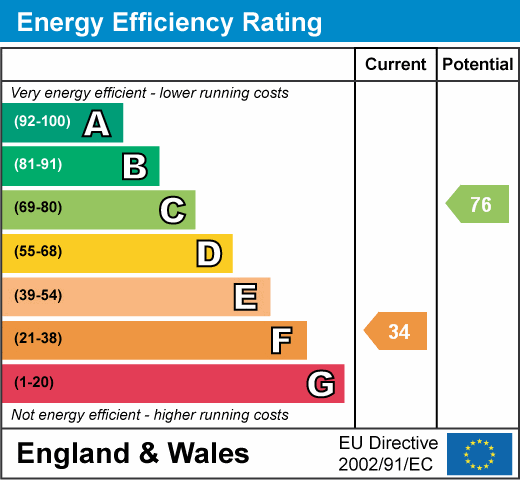An
EPC (Energy Performance Certificate) gives prospective buyers or tenants information on the energy efficiency and carbon emmissions
of that specific building on the date of the energy inspection.
This report provides an energy rating
for homes from A to G, similar to consumer friendly ratings on fridges and other electrical appliances, this in turn
may help you to lower your utility bills and reduce your energy usage and at the same time reduce your carbon emissions.
The report offers various recommendations, with ways to further improve your
energy efficiency rating. These recommendations shows you a guide to the cost of the improvements and how much they are
likely to save you year on year! By making just a few basic change to your home the average household makes a saving
of £300 a year off their utility bills according to the Energy Saving Trust. 
 |
 |

Th e government is commited to comply with EU Directive 2002/91/EC which requires an Energy performance
Certificate for dwellings at the time of sale or rent.
Government Legislation
has now come into force. (1st October 2008) This means that all sellers and landlords are required by law to provide
an Energy Performance Certificate (EPC) for all buildings or parts of buildings before they can be marketted forsale or rent.
Those carrying out the construction of a building are required to provide a predicted Energy Certificate (EPC). The new
owner will then receive the Energy certificate (EPC) in the information sent to the Solicitor/ Conveyencer.
 |
 |
Exceptions to the requirement of an EPC - EPC's are not required
before the construction of a building is completed. Nor are they required on the sale, rent or construction of:
- Places of worship;
- Temporary buildings with a planned time of use less than 2 years;
- Stand alone buildings with a total useable floor area floor area less than 50m2
that are not dwellings;
- Industrial sites, workshops and non-residential agricultural buildings
with low energy demand.

 |